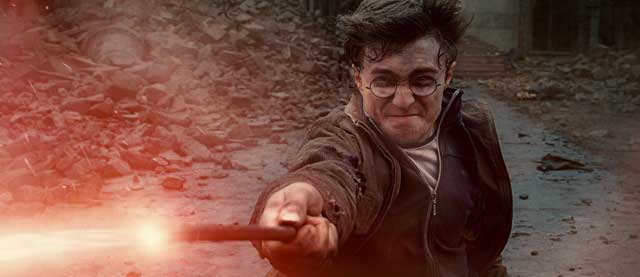Harry Potter: The boy who transformed Britain for ever
As the final film is premiered this week, Kate Youde examines the legacy of J K Rowling's wizard

Your support helps us to tell the story
From reproductive rights to climate change to Big Tech, The Independent is on the ground when the story is developing. Whether it's investigating the financials of Elon Musk's pro-Trump PAC or producing our latest documentary, 'The A Word', which shines a light on the American women fighting for reproductive rights, we know how important it is to parse out the facts from the messaging.
At such a critical moment in US history, we need reporters on the ground. Your donation allows us to keep sending journalists to speak to both sides of the story.
The Independent is trusted by Americans across the entire political spectrum. And unlike many other quality news outlets, we choose not to lock Americans out of our reporting and analysis with paywalls. We believe quality journalism should be available to everyone, paid for by those who can afford it.
Your support makes all the difference.The end is nigh: when the last instalment of Harry Potter's battle against the Dark Lord premieres in London on Thursday, a global, multibillion-pound franchise will wind down.
Harry Potter and the Deathly Hallows: Part 2 is the culmination of 14 years of Pottermania that has swept the globe since hordes of readers fell under the spell of J K Rowling's first book, Harry Potter and the Philosopher's Stone, in 1997. Yet the wizardry phenomenon's influence on the nation is far from over: the seven books and eight films have changed the landscape of our publishing and film industries and left lasting legacies.
The seven films released to date have taken more than £3.6bn at box offices worldwide, according to Rentrak EDI. More significantly, all eight Potter movies were made in the UK.
Adrian Wootton, chief executive of the British Film Commission, says the UK film industry is "stronger because of Harry Potter". The franchise not only employed thousands of people but also allowed for investment in and development of infrastructure, creating a highly trained workforce and the capacity for other blockbusting franchises, such as Sherlock Holmes and Batman.
But of course the magic began in publishing: UK sales of Potter books total more than £225m, according to Nielsen BookScan. Not bad, considering Rowling has said her first manuscript was turned down by "lots" of publishers before being bought by Bloomsbury in 1996.
Jon Howells, a spokesman for the bookseller Waterstone's, said Harry Potter made publishers "take children's books really seriously as a category where we could sell huge volumes of books" and paved the way for other series, such as Philip Pullman's His Dark Materials trilogy and Eoin Colfer's Artemis Fowl books.
Even if you do not know quidditch from horcruxes, it has been impossible to escape the boy with the lightning-bolt scar: from boosting the film industry to raising interest in magic, Harry Potter has made his mark.
Join our commenting forum
Join thought-provoking conversations, follow other Independent readers and see their replies
Comments